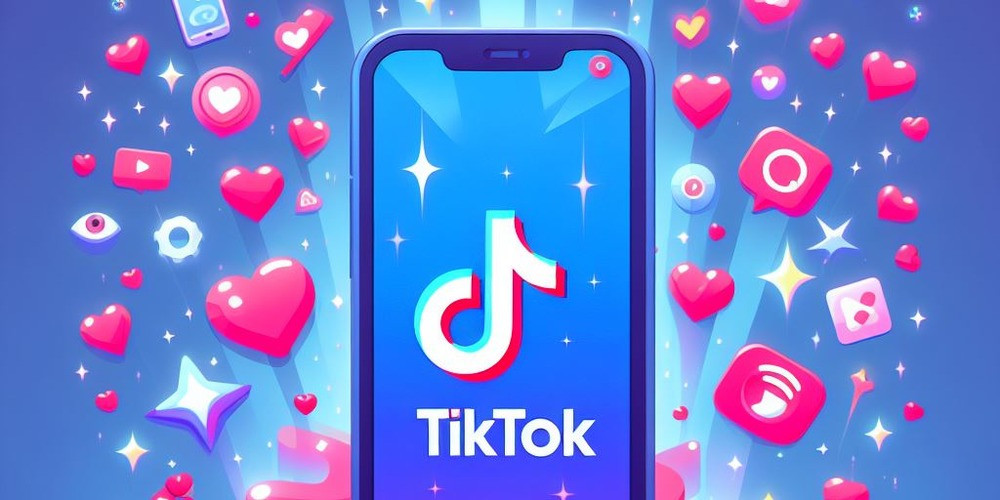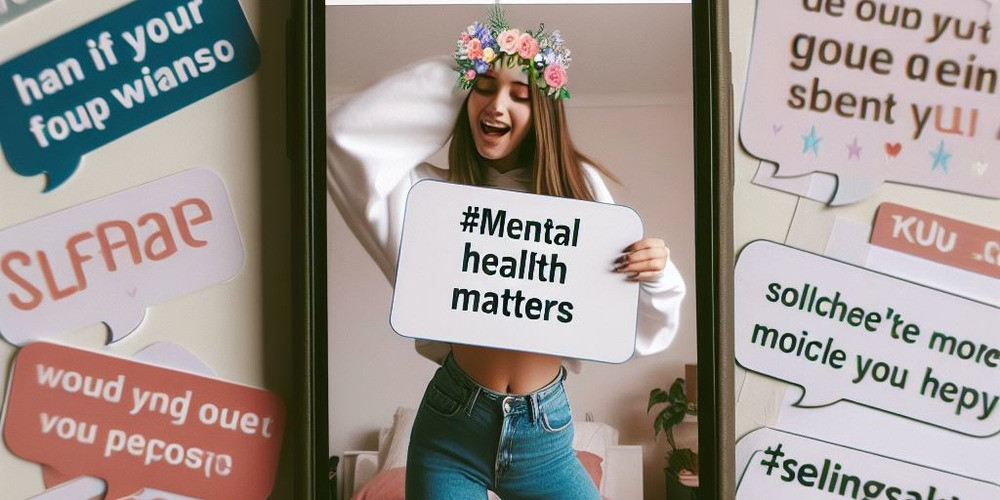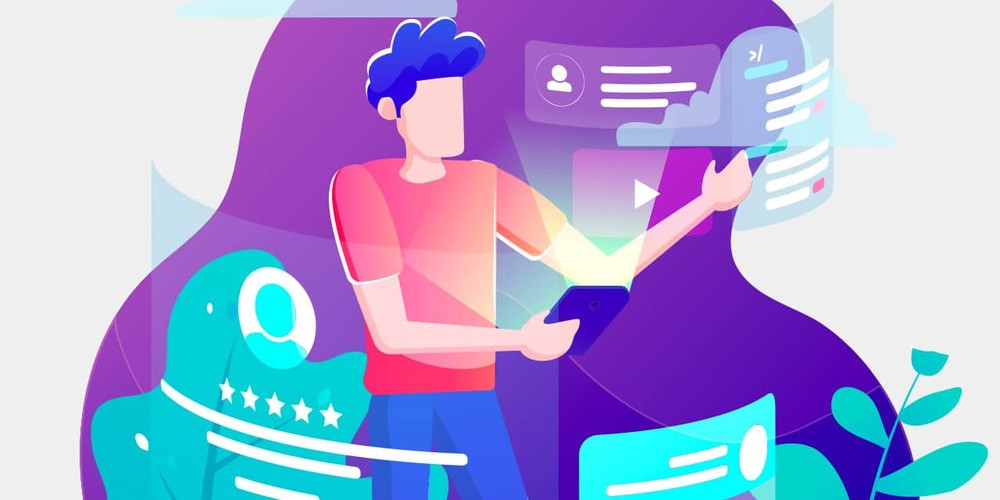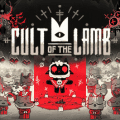The Ripple Effect of TikTok on User Mindsets

In the modern digital landscape, TikTok has emerged as a cultural juggernaut, capturing the hearts and screens of over 900 million individuals worldwide. Currently ranked as the fifth most frequented social media network by 2024, TikTok has transcended its role as a source of amusement, significantly impacting the attitudes and beliefs of its numerous users. This exploration examines the complex ways in which TikTok is influencing the psychological, social, and political viewpoints of individuals.
The Lure of TikTok: An Overview
TikTok has transformed content consumption with its brief, engaging videos that appeal to the increasingly short attention spans of a generation that craves immediate satisfaction. Its algorithm is adept at presenting users with a relentless stream of content tailored to their preferences, making it all too easy to fall into an endless scroll. The platform is not just a place to watch others; it's an arena that encourages users to jump in and participate, creating a sense of community and belonging.
The Mental Health Conundrum

The rise of TikTok has been accompanied by growing concerns over its impact on mental health. Users often find themselves caught in a vicious cycle of comparison, pitting their behind-the-scenes against others' highlight reels. This can exacerbate feelings of inadequacy, anxiety, and depression. The app's emphasis on perfection, through beauty and lifestyle trends, sets unrealistic standards that many strive to emulate, often to the detriment of their self-esteem.
The Allure of Comparison
As users scroll through TikTok, they are bombarded with snapshots of seemingly perfect lives. From flawless beauty routines to stories of extraordinary success, these portrayals can distort one's self-image. Young adults, like senior creative writing major Skyler Baker, witness peers achieving milestones at a dizzying pace, fueling a sense of urgency and inadequacy in their own journeys.
Parasocial Relationships: A Digital Illusion

The concept of parasocial relationships, where users develop one-sided emotional investments in content creators, is amplified on TikTok. This dynamic can lead to unrealistic expectations and a disproportionate sense of intimacy as fans consume content and interact with creators, mistaking online engagement for genuine personal connections.
The Political Echo Chamber
TikTok also serves as an alternative news source for many, with the potential to influence users' political views. However, this influence is double-edged; while the platform can raise awareness and engagement, its algorithms risk creating echo chambers that reinforce pre-existing biases, making it challenging for users to discern fact from opinion.
Content Regulation: A Balancing Act
Despite TikTok's policies to moderate content, the onus remains on users to navigate the platform responsibly. The app's community guidelines aim to foster a safe space, but with such a vast and diverse user base, ensuring a wholesome experience for all is an ongoing struggle.
TikTok in Education: A Tool for Communication

Educators like Laura Dimattia and Hunter Waddell are harnessing TikTok's reach to teach communication strategies, acknowledging its role in shaping societal and individual narratives. By incorporating TikTok into their curriculum, they provide students with a practical understanding of digital communication and its implications.
Conclusion
TikTok's imprint on our collective psyche is undeniable. Its ability to captivate, connect, and communicate makes it a powerful platform that can uplift or undermine, depending on how it's used. As we continue to navigate this digital age, it's crucial to approach TikTok with a critical eye, recognizing its potential to influence mindsets while fostering a conscious and balanced relationship with the content we consume. The responsibility lies with both the platform and its users to collaborate in creating a space that promotes well-being, critical thinking, and constructive discourse.
Latest posts
See more-
![The Last of Us Part II: In-Depth Character Analysis and Storyline Exploration]() Editor’s Choice
2024-08-11
The Last of Us Part II: In-Depth Character Analysis and Storyline Exploration
The Last of Us Part II is an action-adventure video game that has gained significant popularity since its inception. Developed with immense creative prowess by...
Editor’s Choice
2024-08-11
The Last of Us Part II: In-Depth Character Analysis and Storyline Exploration
The Last of Us Part II is an action-adventure video game that has gained significant popularity since its inception. Developed with immense creative prowess by...
-
![CrossCode Developer Announces Alabaster Dawn, Enters Early Access in Late 2025]() News
2024-08-12
CrossCode Developer Announces Alabaster Dawn, Enters Early Access in Late 2025
In 2021, Radical Fish Games initially introduced a new action RPG titled Project Terra. Now, they have officially named it Alabaster Dawn and announced that...
News
2024-08-12
CrossCode Developer Announces Alabaster Dawn, Enters Early Access in Late 2025
In 2021, Radical Fish Games initially introduced a new action RPG titled Project Terra. Now, they have officially named it Alabaster Dawn and announced that...
-
![Alabaster Dawn Planned to Have 30-60 Hours of Playtime, Demo Launching in Early 2025]() News
2024-08-13
Alabaster Dawn Planned to Have 30-60 Hours of Playtime, Demo Launching in Early 2025
Radical Fish Games has made an exciting announcement regarding their upcoming action RPG, Alabaster Dawn, which is set to enter early access in 2025. In...
News
2024-08-13
Alabaster Dawn Planned to Have 30-60 Hours of Playtime, Demo Launching in Early 2025
Radical Fish Games has made an exciting announcement regarding their upcoming action RPG, Alabaster Dawn, which is set to enter early access in 2025. In...
Latest Reviews
See more-
![]() Action
Cult of the Lamb
Action
Cult of the Lamb
-
![]() Action
WILD HEARTS™
Action
WILD HEARTS™
-
![]() Casual
Gacha Club
Casual
Gacha Club
-
![]() Action
Call of Duty®: Warzone™ 2.0
Action
Call of Duty®: Warzone™ 2.0
-
![]() Action
Gacha Cute
Action
Gacha Cute
-
![]() Action
Cuphead - The Delicious Last Course
Action
Cuphead - The Delicious Last Course










